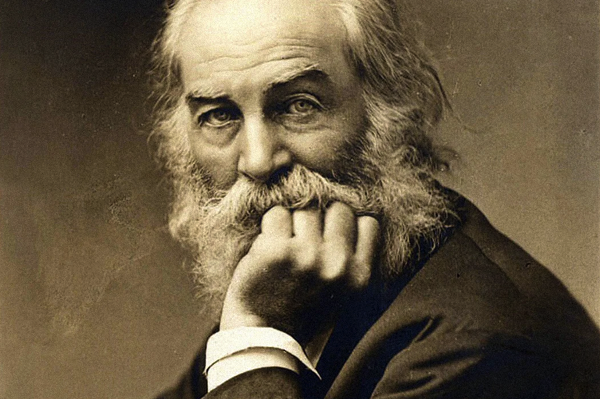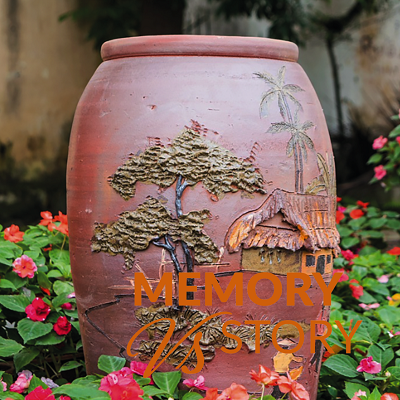THIS WEEK’S MUSE
WALT WHITMAN, WRITER

At a public lecture in 1837 poet and philosopher Ralph Waldo Emerson questioned the current state of American literature. “Where is the great American poet?” he asked, suggesting everything about contemporary American poetry was “conventional and derivative,” particularly when compared to European literature. By asking the question he also laid down a challenge. “It was time” for change and, in his opinion, to shake America out of its literary wilderness.
In the audience that day was eighteen-year-old printer, journalist, and bourgeoning writer Walter Whitman Jr. Fired up by Emerson’s ‘call to arms,’ he was confident he had the solution in his own developing style that was bold, unconventional, and deeply personal. “Simmering, simmering, simmering,” Whitman later said, “And Emerson set me to boil.”
By this time, Whitman had been working in Manhattan for about five years and was beginning to find his writing voice having already published a number of articles and poems. He was self-contained, self-sufficient, and confidently poised to meet Emerson’s challenge.
His self-funded 1855 work, Leaves of Grass, directly addresses Emerson’s overt call for a literary revolution. Embracing the American people and the vast, varied, and rambling geography of his relatively new—country, Whitman strove towards an unrestrained and unconventional free writing form that largely rejected traditional meter in favor of long lines, informal rhythms and half rhymes. Delivered, moreover, in a personal, ‘natural’ style, his words echo and collide with each other as he sought to create continuity within richly diverse and often unassociated ideas.
Like Emerson, Whitman was a champion of transcendentalism – a philosophical, spiritual, and literary movement that had found favor in New England. At its core was the belief in the inherent goodness of people and nature. People were at their best, it argues, when truly self-reliant and independent, and Whitman’s singular, wild, wide-open writing style would allow the people of this new America to burst through its lines.
He introduced many kinds of characters and ideas, people and places – to somehow frame, describe, or represent a new ‘America.’ Traditional verse simply couldn’t cope with these new requirements – a deeply self-centered, personal from-the-heart approach that could only succeed through raw emotion.
His singular approach to life and professional independence that fed his sense of self was a constituent part of the whole that spoke to his audience, exemplified in Leaves of Grass. “I celebrate myself,” it began, “And what I assume you shall assume for every atom belonging to me as good belongs to you.” It was a personal approach that demanded the ‘self’ be set at its heart, a heart which ‘America’ could both directly relate to and call its own.
If the America of the late 19th century was looking for someone to revolutionize its literature, change its understanding of how poetry was written, and compete with European literary dominance, those needs were met by Walt Whitman.
“The proof of a poet is that his country absorbs him as affectionately as he has absorbed it.”
HAPPENINGS
Thursday, August 24 & Friday, August 25

10am–noon
MEMORY VESSEL: CLAY WORKSHOP
with Kathleen Kendall
Discover how to capture a moment in clay!
Member: $66, Non-member: $74
Tuesday, August 29, 10–11am

COFFEE & MOTHER EARTH: THEME GARDENS
with Priscilla Husband
Discover a fun approach to the spaces yet to be planted!
Member: $14, Non-member: $16
| CULTURAL CENTER OF CAPE COD |
